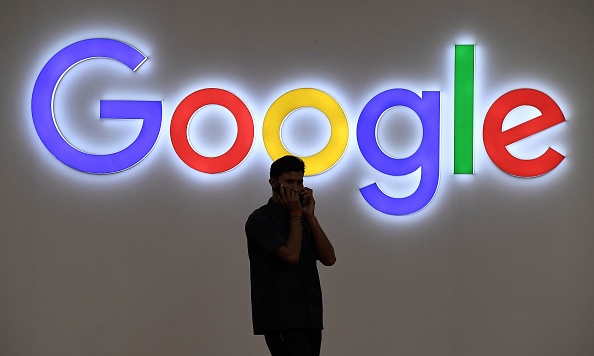Google reportedly discovers Russian political ad buys similar to those uncovered by Facebook, Twitter


A free daily email with the biggest news stories of the day – and the best features from TheWeek.com
You are now subscribed
Your newsletter sign-up was successful
An internal investigation at Google has uncovered that the tech giant is not unique from Facebook and Twitter in being used as a tool by Russian agents to influence the 2016 election, The Washington Post reports. People familiar with Google's probe, which has not yet been made public by the company, revealed that Russia-linked accounts attempted to spread disinformation through ads on YouTube, Google search, Gmail, and the ad subsidiary DoubleClick.
"The discovery by Google is ... significant because the ads do not appear to be from the same Kremlin-affiliated troll farm that bought ads on Facebook — a sign that the Russian effort to spread disinformation online may be a much broader problem than Silicon Valley companies have unearthed so far," the Post writes.
Known Russian advertising through Google totaled about $100,000 and promoted Donald Trump, Bernie Sanders, and Jill Stein as well as divisive topics like anti-immigration policies. Facebook and Twitter previously agreed to meet with congressional investigators to discuss similar ad buys by Russian agents, although it isn't clear if Google will join the tech representatives at a Nov. 1 hearing.
The Week
Escape your echo chamber. Get the facts behind the news, plus analysis from multiple perspectives.

Sign up for The Week's Free Newsletters
From our morning news briefing to a weekly Good News Newsletter, get the best of The Week delivered directly to your inbox.
From our morning news briefing to a weekly Good News Newsletter, get the best of The Week delivered directly to your inbox.
Last month, Google denied that it was used for Russia's 2016 disinformation campaign. Google "[is] always monitoring for abuse or violations of our policies and we've seen no evidence this type of ad campaign was run on our platforms," spokeswoman Andrea Faville told The Washington Post. Read the full investigation here.
A free daily email with the biggest news stories of the day – and the best features from TheWeek.com
Jeva Lange was the executive editor at TheWeek.com. She formerly served as The Week's deputy editor and culture critic. She is also a contributor to Screen Slate, and her writing has appeared in The New York Daily News, The Awl, Vice, and Gothamist, among other publications. Jeva lives in New York City. Follow her on Twitter.
-
 The EU’s war on fast fashion
The EU’s war on fast fashionIn the Spotlight Bloc launches investigation into Shein over sale of weapons and ‘childlike’ sex dolls, alongside efforts to tax e-commerce giants and combat textile waste
-
 How to Get to Heaven from Belfast: a ‘highly entertaining ride’
How to Get to Heaven from Belfast: a ‘highly entertaining ride’The Week Recommends Mystery-comedy from the creator of Derry Girls should be ‘your new binge-watch’
-
 The 8 best TV shows of the 1960s
The 8 best TV shows of the 1960sThe standout shows of this decade take viewers from outer space to the Wild West
-
 TikTok secures deal to remain in US
TikTok secures deal to remain in USSpeed Read ByteDance will form a US version of the popular video-sharing platform
-
 Unemployment rate ticks up amid fall job losses
Unemployment rate ticks up amid fall job lossesSpeed Read Data released by the Commerce Department indicates ‘one of the weakest American labor markets in years’
-
 US mints final penny after 232-year run
US mints final penny after 232-year runSpeed Read Production of the one-cent coin has ended
-
 Warner Bros. explores sale amid Paramount bids
Warner Bros. explores sale amid Paramount bidsSpeed Read The media giant, home to HBO and DC Studios, has received interest from multiple buying parties
-
 Gold tops $4K per ounce, signaling financial unease
Gold tops $4K per ounce, signaling financial uneaseSpeed Read Investors are worried about President Donald Trump’s trade war
-
 Electronic Arts to go private in record $55B deal
Electronic Arts to go private in record $55B dealspeed read The video game giant is behind ‘The Sims’ and ‘Madden NFL’
-
 New York court tosses Trump's $500M fraud fine
New York court tosses Trump's $500M fraud fineSpeed Read A divided appeals court threw out a hefty penalty against President Trump for fraudulently inflating his wealth
-
 Trump said to seek government stake in Intel
Trump said to seek government stake in IntelSpeed Read The president and Intel CEO Lip-Bu Tan reportedly discussed the proposal at a recent meeting
